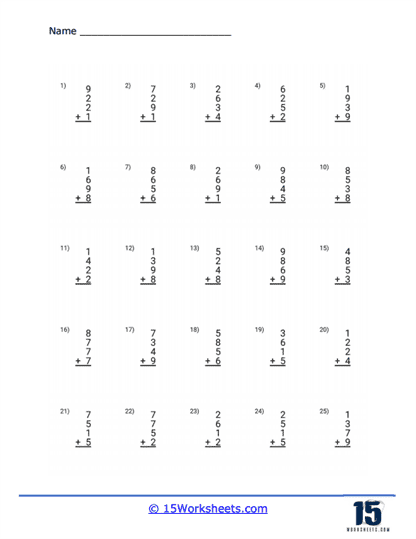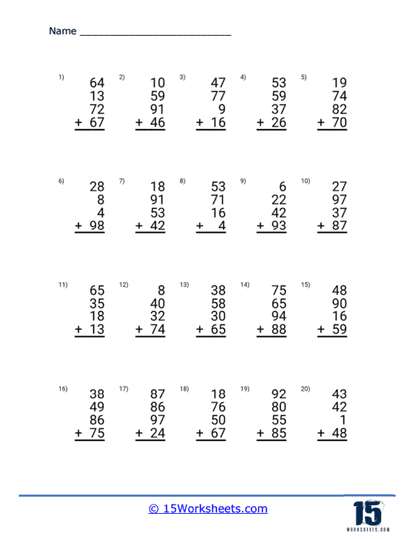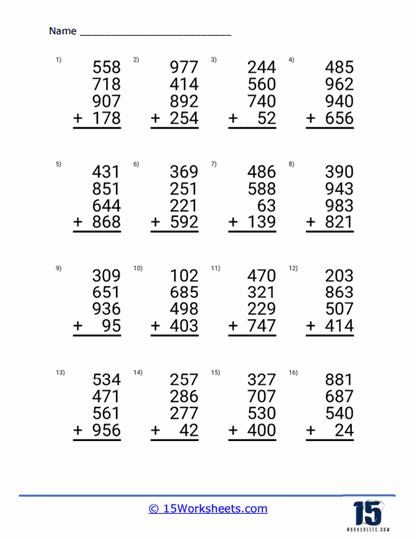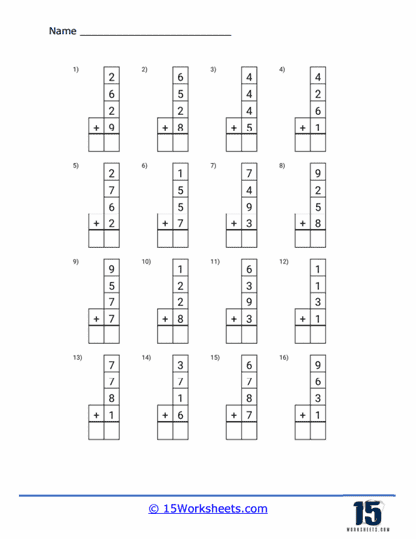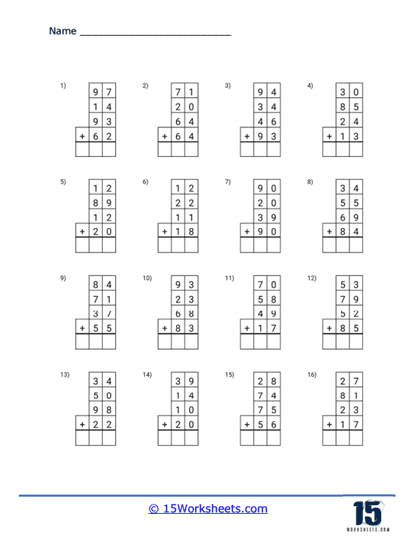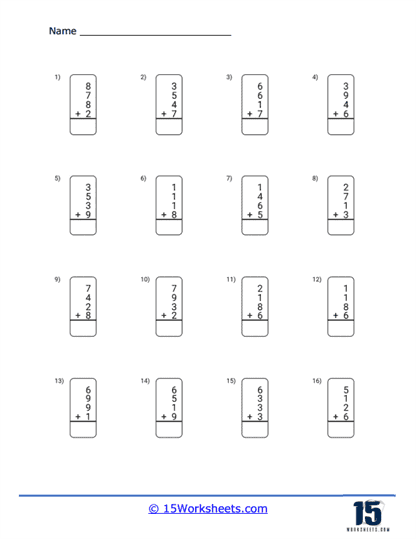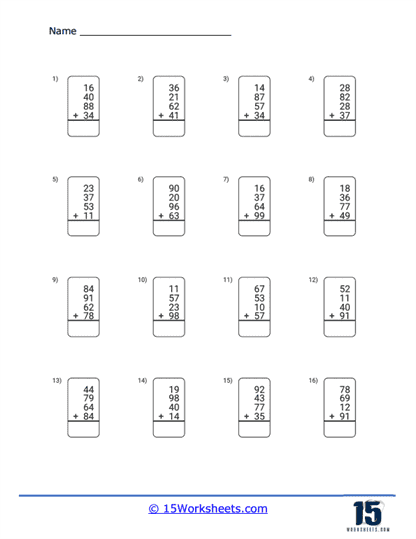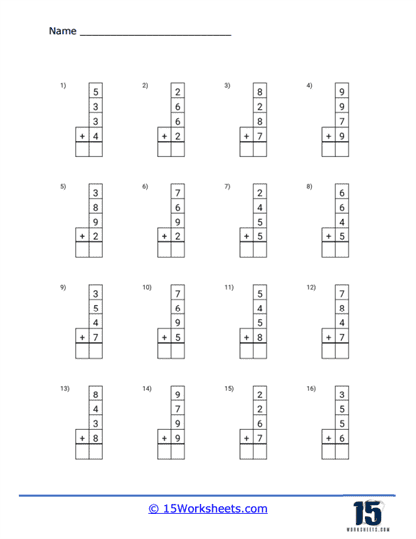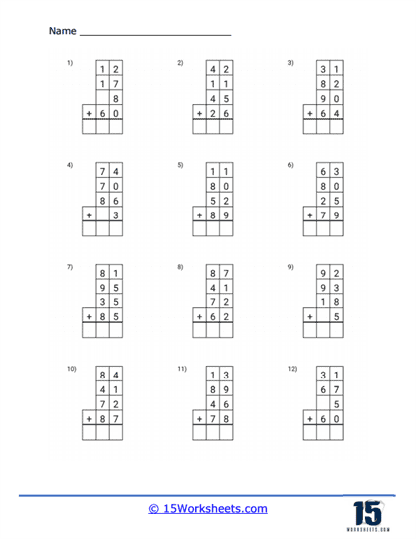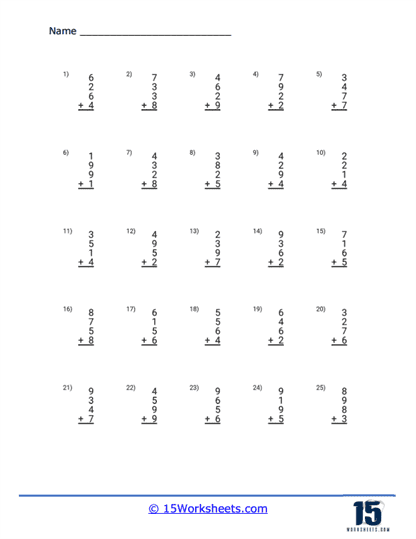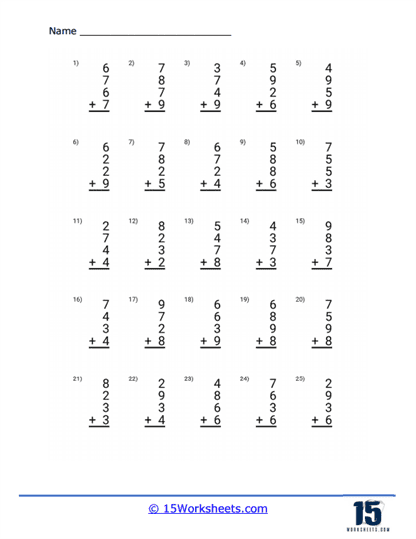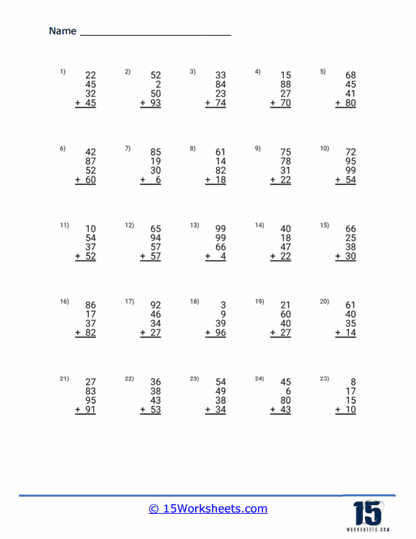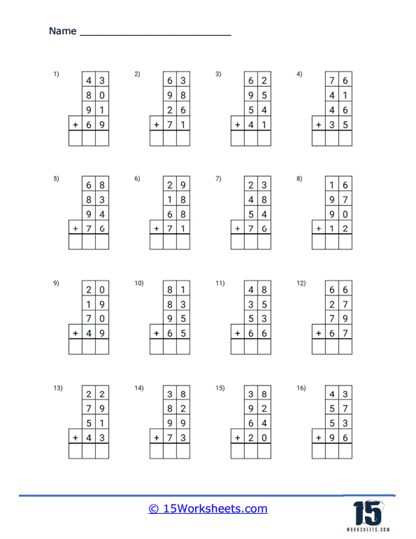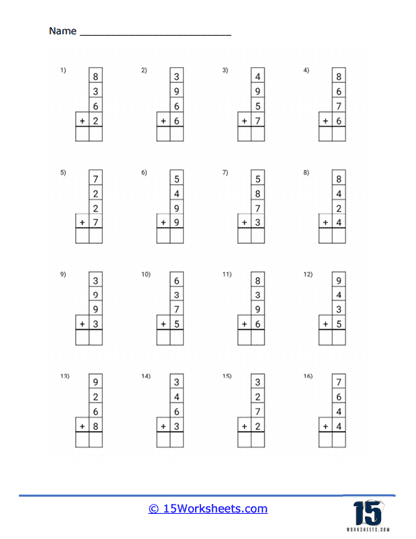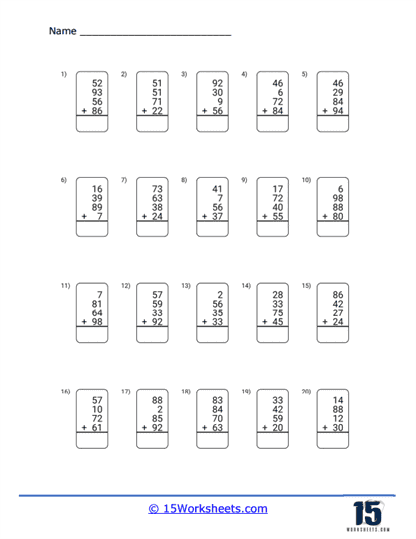Adding 4 Numbers Worksheets
All About These 15 Worksheets
This collection of worksheets on adding 4 numbers is a valuable resource for students who are learning to add multiple numbers together. These worksheets contain a range of addition problems that require students to add four numbers together to find the sum. The problems on these worksheets involve adding four numbers together that all have the same number of digits, making them ideal for students who are only beginning to practice this math operation.
To help students understand the concept of adding 4 numbers, these worksheets also include helpful visuals such as number lines or grids. These visual aids can help students solve the equations in a more organized manner and develop a deeper understanding of the addition process.
One of the primary benefits of using these worksheets is that it provides students with ample practice and reinforcement of the addition concept. As students work through the problems, they develop their mental math skills, become more confident in their abilities, and are better equipped to apply what they’ve learned to other areas of math.
In summary, this series of worksheets on adding 4 numbers is a useful tool for students who are learning to add multiple numbers together. By completing these worksheets, students develop their addition skills and build a strong foundation for future mathematical concepts.
When Do We Use This Skill?
There are various situations in everyday life and professional settings where finding the sum of multiple numbers is necessary. Some examples include:
- Budgeting – Calculating the total expenses or income by adding individual amounts, such as rent, utility bills, groceries, and entertainment costs.
- Shopping – Adding the prices of individual items in a shopping cart to find the total cost, or summing up the discounts and taxes to determine the final amount to be paid.
- Time management – Adding up the duration of different tasks or activities to plan a daily schedule, track the total time spent on specific projects, or estimate the time needed to complete a task.
- Inventory management – Summing up the quantities of individual items to calculate the total stock, or determining the total number of items sold or purchased.
- Data analysis – Analyzing datasets often involves summing up values, such as sales figures, population numbers, or survey responses, to compute aggregate metrics or key performance indicators.
- Sports and games – Calculating the total scores, statistics, or points earned by individuals or teams, or determining the combined results of multiple rounds or events.
- Education – Grading assignments, exams, or projects by summing up the points earned in different sections or criteria, or calculating the overall class performance by adding individual scores.
- Travel – Estimating the total distance, cost, or time for a trip by adding up the individual segments, such as the distances between stops, the costs of various modes of transportation, or the duration of layovers.
- Event planning – Organizing events often requires summing up the number of attendees, the total cost of food and beverages, or the expenses for equipment, venue, and staff.
- Fundraising – Tracking the progress of a fundraising campaign by adding up the donations or contributions received from different sources or individuals.
These are just a few examples of situations where finding the sum of multiple numbers is essential. In general, addition is a fundamental arithmetic operation that is frequently used in various aspects of daily life and professional tasks.

